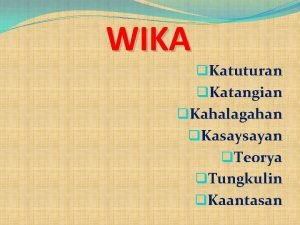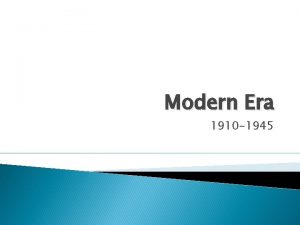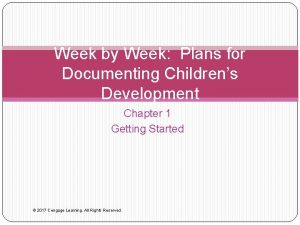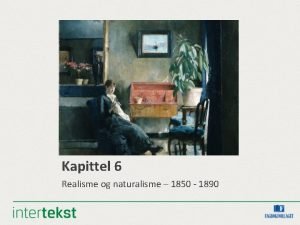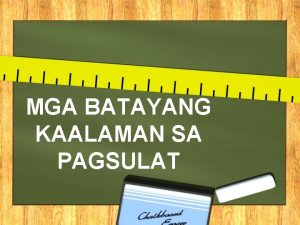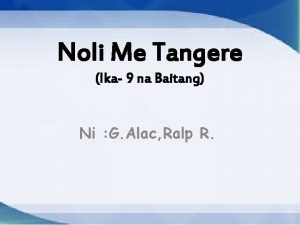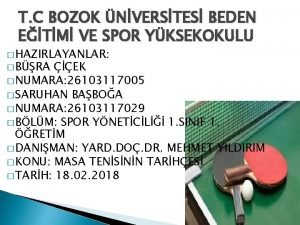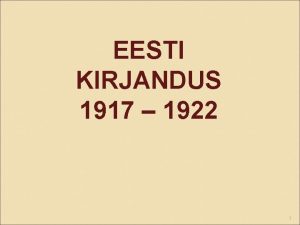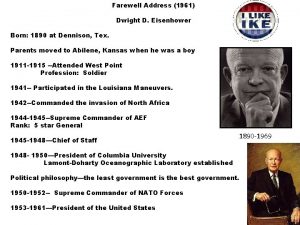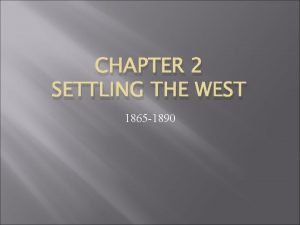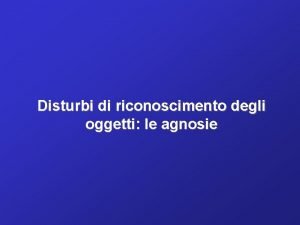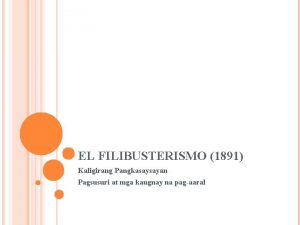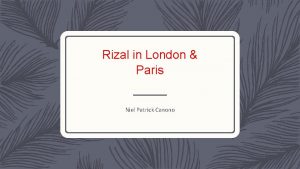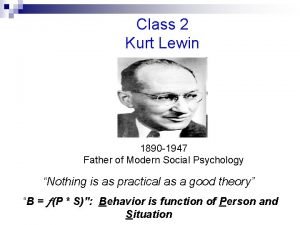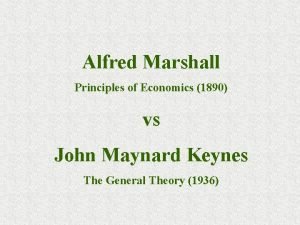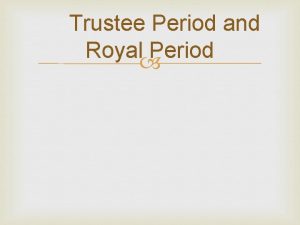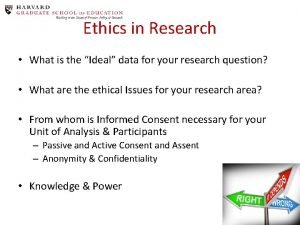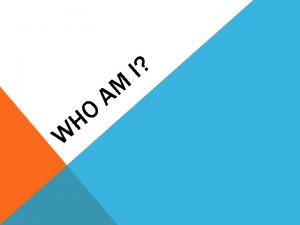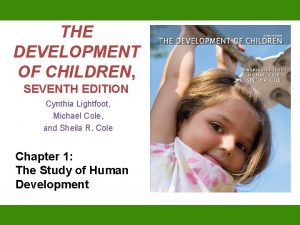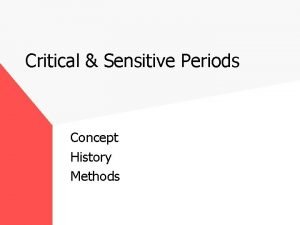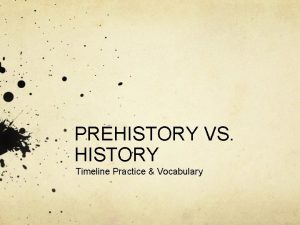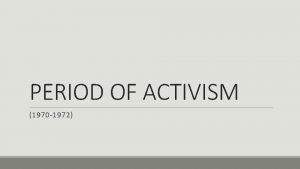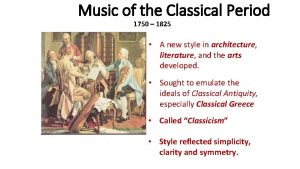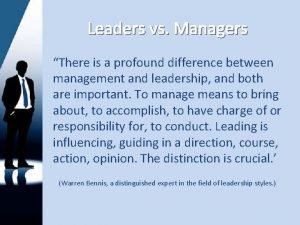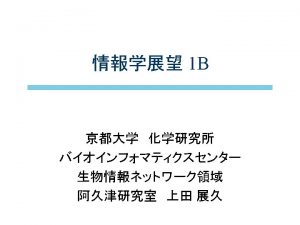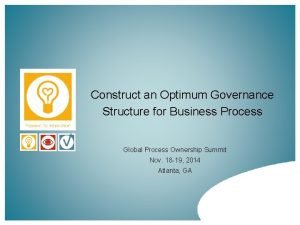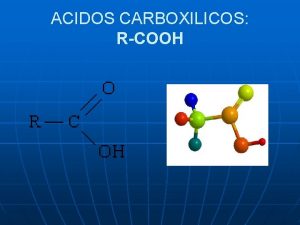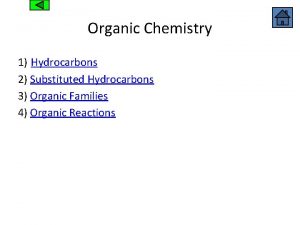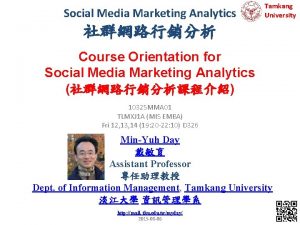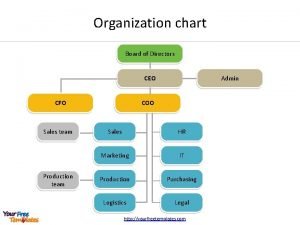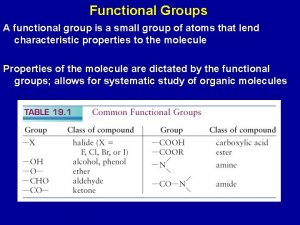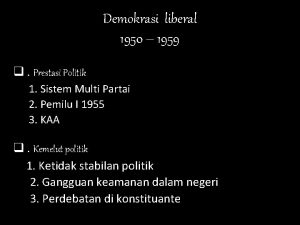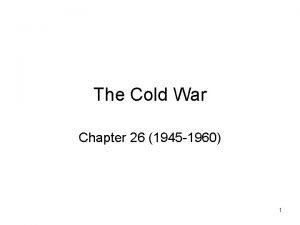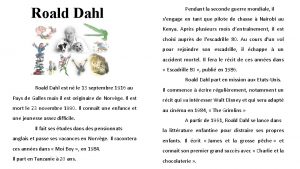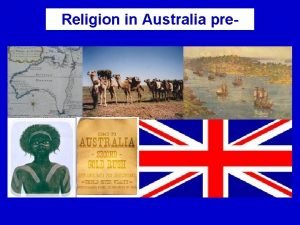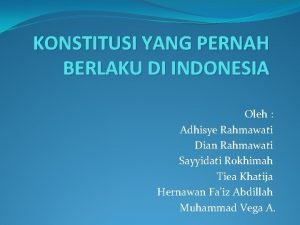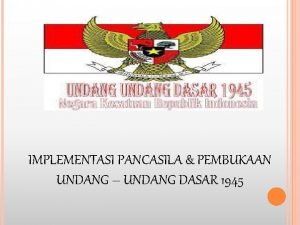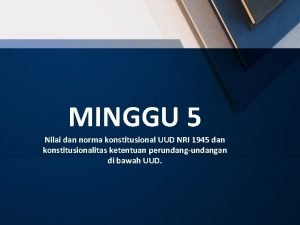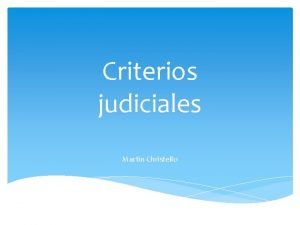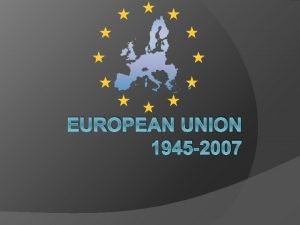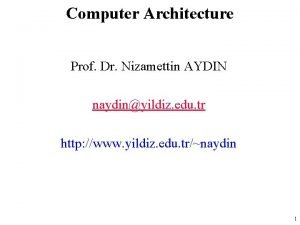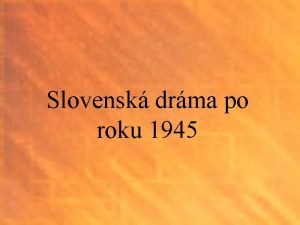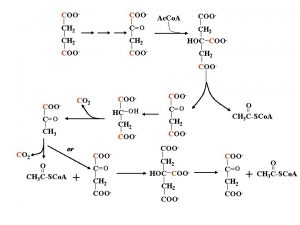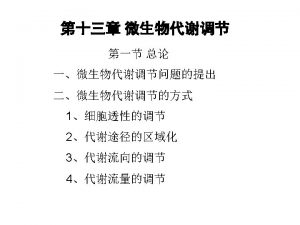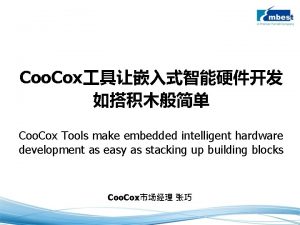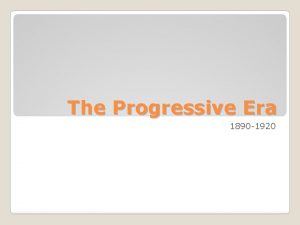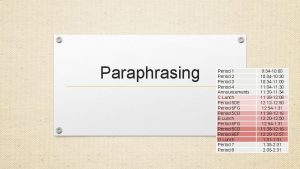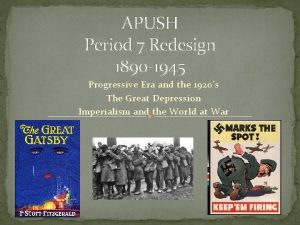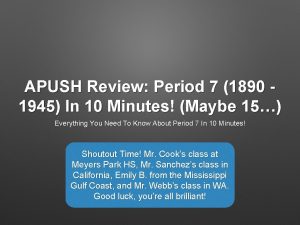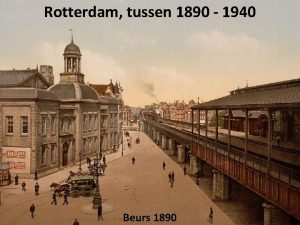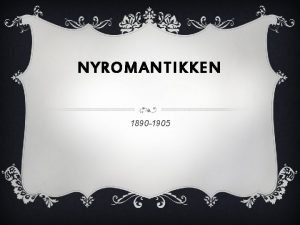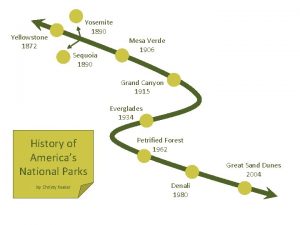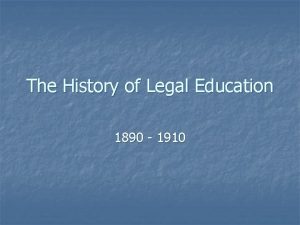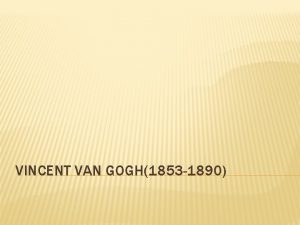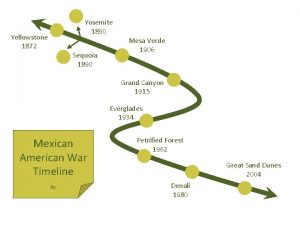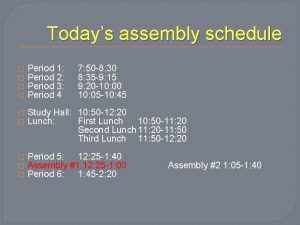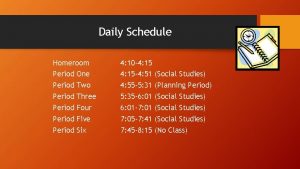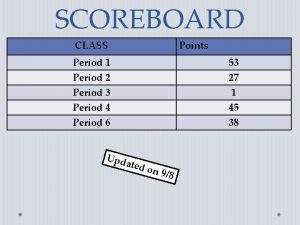PERIOD 7 1890 1945 TODAYTHIS WEEK IS COO



















































- Slides: 51

PERIOD 7: 1890 -1945

TODAY/THIS WEEK IS COO Monday/Tuesday: 1. Reading Quiz 2. Imperialism AND Spanish American War 3. DBQ Introductions (and more instruction) 1. Context 2. Outside Evidence 3. Where to go for more guidance 4. Due Monday/Tuesday Wednesday/Thursday (I am in the building but won’t be in class…you may see me in some of yours) 1. Overview into Reformers/ ‘Muck-rakers’ 1. 2. 3. Examine some leading reformers and Progressive era leaders Assignment of your specific reformer Read your specific document and research your reformer in preparation for Socratic on Friday - Socratic Seminar on reformers Weekend: • FINISH DBQ – Due Monday • Read Ch. 29 DUE MONDAY • You’re getting assigned a short answer on Wed/Thursday…. due MONDAY! • Make sure you stay on top of your week!

IMPERIALISM THE SPANISH-AMERICAN WAR

WHY IMPERIALISM? 1. Industrialization – need buyers for American goods 2. Social Darwinism, Social Gospel, White Man Burden, etc 3. Frontier Closed, we need somewhere to grow 4. Age of Imperialism around the world 5. Alfred Tyler Mahan’s book The Influence of Sea Power Upon History

THE OPENING OF CHINA AND JAPAN Chinese civilization had traditionally been self-sufficient • Centuries showed china sent more goods and inventions to Europe than it received Trade was regulated by the Chinese imperial government • Qing wanted isolationism not commercial exchange All foreign “inferior” merchants had to live on southern part of Canton Practices harmful to China were forbidden • Export of silver or sale of Opium

OPENING OF CHINA AND JAPAN Opium being grown legally in India was smuggled into China government wanted to get rid of Opium Trade Japan wanted NO foreign influences. Opium production in Calcutta, India, in 1900. Workers in dhotis and turbans are mixing and balling opium.

OPENING OF CHINA Open Door Policy, 1899. • Introduced by John Hay. • China was in a bad situation as the Manchu dynasty was tottering. • China was being carved up amongst the major powers as spheres of influence, not as colonies. • United States wanted to ensure Chinese territorial integrity while at the same time maintaining free trade. Secretary of State John Hay

OPENING OF CHINA Open Door Policy, 1899. • Hay writes notes to the six major powers (Britain, France, Russia, Germany, Japan, and the Dutch). • The U. S. enjoyed the rights to advance its commercial interests anywhere in the world, at least on terms equal to those of the other imperialist nations. • Failure to do so could result in American economic sanctions or war.

OPENING OF CHINA Boxer Rebellion, 1898 -1900. • Rioted in 1898 and 1899, killing thousands of Chinese Christians and taking control of the Chinese capital of Peking. • Surrounded the foreign embassies in the major cities, essentially taking the foreigners hostage. • Manchu dynasty showed that it was unable to control its own subjects. • International powers send troops to China to quell the rebellion. • First time all of the major international powers agreed on something. • President Mc. Kinley, without waiting for Congressional approval, sends 5, 000 troops and half the Pacific fleet to China.

OPENING OF JAPAN Origins. • Early 1600 s, Tokugawa Shogunate closes the doors of Japan to the West. • Were afraid that they were losing their national identity. • Outside of a few Dutch and Chinese traders, Japan remains isolated for 250 years. Tokugawa Ieyasu http: //upload. wikimedia. org/wikipedia/commons/thumb/8/89/To kugawa_Ieyasu. jpg/575 px-Tokugawa_Ieyasu. jpg

OPENING OF JAPAN Japan also practiced a policy of exclusion similar to China (remember Opium war from Euro) • Whaling ships in 1825 were ordered away by Japanese officials Americans were “destined” to play a role in the Pacific and felt it was through Japan • It was the duty of the U. S. to make Japan a civilized nation

OPENING OF JAPAN Matthew Perry steamed into Edo Bay in 1853 and demanded diplomatic negotiations • Japan knew they were no match for naval attacks and reluctantly signed a treaty with U. S. that opened two ports and permitted trade

INFLUENCE IN HAWAII Sugar • Descendants of American missionaries engage in the cultivation of sugar. • Send it to America for sale, soon dominate the market and the Hawaiian monarchy. • 1875, Hawaiian sugar is duty-free in America. • In return, the Hawaiian monarchy agrees not to cede any land to any other foreign power. • 1887, Pearl Harbor. • U. S. is given the right to build a naval base at Pearl Harbor. Sugarcane Worker in Hawaii http: //www. kauaiplantationrailway. com/ims/images/3084. 23. jpg

INFLUENCE IN HAWAII Queen Liliuokalani. • “Hawaii for Hawaiians. ” • Tried to push out American influence. • Attempted to rule as an absolute monarch. • Abolished the constitution that granted special rights to the white minority. Queen Liliuokalani. • 1893, coup overthrows Queen Lil. • Americans take over the island under the supervision of American diplomat John L. Stevens and pineapple magnate Sanford B. Dole. 150 U. S. Marines storm the palace and depose the queen. • Sets up the Pineapple Republic, with Dole as president. • The republic petitions the United States for annexation. Queen Liliuokalani http: //volcano. und. edu/vwdocs/Parks/hawaii/recent_events/Lilioukalani. gif

INFLUENCE IN HAWAII Question of annexation. • Debate rages until 1898. • Many Americans, including President Cleveland, are outraged by the use of American troops in a coup. • Cleveland, however, refuses to use American troops against American citizens in the islands. • Does not restore Queen Lil to the throne. • Mainland sugar producers will not support annexation. Spanish-American War, 1898. • Wanted to keep Hawaii out of European hands, so the American government officially annexes it.

INFLUENCE IN LATIN AMERICA First effort of the U. S. to not only assume a leadership role in international policies, but also work with the Latin American nations as equals. Bolivian Stamp Commemorating 50 th Anniversary of Pan-Am Union http: //www. flagsonstamps. info/bolivia 375. jpg

INFLUENCE IN LATIN AMERICA-CHILE Revolutionaries overthrow the government, expressing anti. Yanqui sentiment. • Disliked America because we refused to sell arms to them. Map of Chile http: //www. cvc. org/christmas/map. gif

Influence in Latin America Valparaiso incident. • American sailors on shore leave are attacked by a Chilean mob, 2 killed. • U. S. demands an apology and restitution to the families of the dead sailors. • The Chilean government delays and President Cleveland invites Congress to declare war. • Chile backs down, but its humiliation hurts Pan. American relations.

INFLUENCE IN LATIN AMERICA-VENEZUELA Border dispute. Map of Venezuela http: //www. american. edu/TED/images 2/map-ven. gif • Border between British Guiana and Venezuela, with Britain exaggerating its territorial claims. • Seizes the territory with military force. • Venezuela is close to declaring war.

Influence in Latin America Richard Olney • Believed that the British occupation of the disputed territory was an invasion of Venezuela. • Stated that Britain was violating the Monroe Doctrine. • Britain retorted that the Monroe Doctrine has no international standing. Richard Olney http: //www. spartacus. schoolnet. co. uk/USAolney. jpg

INFLUENCE IN LATIN AMERICA If Britain did not submit the issue to international arbitration, the U. S. would side with Venezuela and declare war. Britain laughed it off, but Congress appropriated $100 K for a commission to research the claim and $30 million increase in the military budget. Monroe Doctrine http: //www. mexicolore. co. uk/uploadimages/169_02_2. jpg

INFLUENCE IN LATIN AMERICA Britain started to realize the seriousness of the situation and backs down. Did not want war with the United States at any cost. • Would hurt trade relations. • More worried about growing German power than American power. • Canada (a British possession) was vulnerable to American attack. • To fight “would be an absurdity as well as a crime. ”

QUESTIONS OVER HAWAII/CHINA? 6, 7, 8

MAKING PREDICTIONS “Well, I hardly know which to take first!”

CUBANS IN REVOLT • American tariffs on sugar cane hurt Cuban economic stability. • Frustrated Cubans used hard economic times to mount an insurrection… • The Insurectos did everything within their power to expel the Spanish. • The Americans sided with the revolutionary underdogs… • According to H. C. Lodge they were in the line of the Panama Canal. • Why would America be so interested in a canal in Panama?

CUBANS IN REVOLT

Influence in Latin America-Cuba Spanish General Valeriano Weyler. • Nicknamed “the Butcher. ” • Becomes governor of Cuba. General Valeriano Weyler http: //www. loc. gov/rr/hispanic/1898/img/wey. jpg • Wants to end the rebellion. • To break supplies and troops, Weyler sends the rural population to “reconcentration camps. ” • Thousands die to poor conditions, brutality, and disease.

INFLUENCE IN LATIN AMERICA-CUBA Public sympathy in the United States. • Cubans were “fighting the good fight” against an Old World Power. • Cuban rebels were exaggerating reports of Cuban horrors in order to drum up American support. Cuban Reconcentration Camp Guards http: //www. eldesastredel 98. com/fotos/fuerte 2. jpg

INFLUENCE IN LATIN AMERICA-CUBA http: //www. historyofcuba. com/images/race/Cane. jpg Cuban Sugar Plantation American business interests, with sugar plantations ($50 million), tourism, and tobacco.

INFLUENCE IN LATIN AMERICA-CUBA The Yellow Press. • Two largest newspaper owners, William Randolph Hearst and Joseph Pulitzer, are competing for new readers. • Best way to attract new customers was to “sensationalize” the headlines and incidents. • Told tales of Spanish cruelty in Cuba with attention-grabbing headlines. Joseph Pulitzer & William Randolph Hearst http: //www. notablebiographies. com/images/uewb_08_img 0576. jpg http: //www. zpub. com/sf/history/willh. gif

YELLOW JOURNALISM!! • The American people dove into the plight of the Cuban revolutionaries. • Stories of Spanish atrocities sold papers in the fierce competition for circulation between Hearst and Pulitzer. • “You Furnish the Pictures, and I’ll Furnish the War” –Hearst • Breaking News #1 - The De Lôme letter • Spanish Ambassador Dupuy de Lôme has a letter intercepted that refers to Mc. Kinley as weak and other Republicans as jingoes. • Hearst prints the story as the “Worst Insult to the United States in its History. “ • Breaking News #2 - The USS Maine • BOOM!!!

THE USS MAINE • Primary Source Investigation • You and 2 other individuals will read/investigate each of the 9 documents. • On your own paper, you will respond to each of the Sourcing, Close Reading, and Contextualizing questions for each document. • Be prepared to discuss your findings.

THE TRAGEDY OF THE MAINE • February 15 th, 1898 • Havana Harbor • Loss of 260 sailors • 2 Investigations Ensued • The Spanish Investigation found that an internal/accidental explosion brought down the Maine. • The American Investigation argued that it was a naval mine. • In 1976 a US investigation validated the previous Spanish investigation that spontaneous combustion caused the explosion. A 2002 History Channel Documentary found the same.

YELLOW JOURNALISM Pulitzer’s World Hearst’s Journal

REMEMBER THE MAINE, TO HELL WITH SPAIN!

MCKINLEY’S WAR MESSAGE • Mc. Kinley was leery of open hostilities with Spain. • Mc. Kinley also wasn't comfortable with a fully independent Cuba. • Theodore Roosevelt referred to the president as “White-Livered” and claimed that he had “the backbone of a chocolate éclair. ” • • • Assistant Secretary of the Navy in the Mc. Kinley administration. • Later, would resign from office to fight in the war. Mc. Kinley gave the people what they wanted and issued a war message to Congress in April of 1898. Said we were going to war to: • • Put an end to the bloodshed and starvation in Cuba Protest lives/property of Americans in Cuba End the injury to commerce and trade with Americans End the constant menace to our peace that would result from an uprising in Cuba

THE TELLER AMENDMENT • The amendment to Congress’ Joint Resolution that after the war with Spain had ended the US would return "control of the island to its people. “ • "The Teller Amendment, authored by a Colorado Senator who wanted to make sure that Cuba's sugar would not compete with his state's crop of beet sugar, prohibited the president annexing Cuba. “ –Gregory Weeks, 2008 • The Platt Amendment, crafted in 1901 by U. S. Secretary of War Elihu Root to replace the Teller Amendment, allowed for important decisions of the government of Cuba to be overridden by the United States.

ROOSEVELT JUMPS INTO THE PACIFIC WITH BOTH FEET • Even before war had been declared T. R. called on Commodore George Dewey to relocate his naval forces from Hong Kong to the waters off the Philippines. • On May 1 st, Dewey and his 6 warships defeated the first Spanish fleet in the harbor of Manila. • Technological Superiority • Spanish casualties neared 400 and Dewey’s fleet suffered no loss of life.

THE SURRENDER OF MANILA • Commodore Dewey transported Emilio Aguinaldo, a well educated, Filipino leader who had led rebellion against Spanish rule in the Philippines in 1896, to the Philippines from exile in Hong Kong to rally more Filipinos against the Spanish colonial government. • By June, U. S. and Filipino forces had taken control of most of the islands. • Aguinaldo proclaimed the independence of the Philippines. • On August 13 th, with American commanders unaware that a cease-fire had been signed between Spain and the U. S. on the previous day, American forces captured the city of Manila from the Spanish. • American action of preventing Filipino forces from capturing the city of Manila was deeply resented by the Filipinos.

THE CONFLICT IN CUBA • Spain had sent a naval fleet to Cuba just before the declaration of war on April 25 th. • A frightened eastern seaboard called for immediate action. • The first American invasion force was horrendous. • Poorly Trained • Poorly Led – Gen. William Shafter • Poorly Equipped

THE ROUGH RIDERS • Theodore Roosevelt advocated intervention in Cuba, both for the Cuban people and to promote the Monroe Doctrine. • Roosevelt took lead of the 1 st Volunteer Cavalry • “The Cowboy Cavalry” was made up of college athletes, cowboys, and ranchers.

THE BATTLES OF SAN JUAN AND KETTLE HILL • The Battle of San Juan Hill (July 1, 1898) was a decisive battle in Cuba. • • • The names San Juan Hill and Kettle Hill were names given by the Americans. This fight for the San Juan Heights was the bloodiest and most famous battle of the War. San Juan Hill was the location of the greatest victory for the Rough Riders as claimed by the press and its new commander, the future Vice-President and later President, Theodore Roosevelt. Overlooked then by the American Press, much of the heaviest fighting was done by African-American troops.

BUFFALO SOLDIERS • The Buffalo Soldiers were an all black cavalry originally formed at Fort Leavenworth in 1866. • • Some attribute the name to the Cheyenne who referred to the cavalry as Buffalo Soldiers during their conflicts The Buffalo Soldiers were only a portion of the 5, 000+ African American troops serving in the United States Military.

MAKING PEACE • With defeats in Cuba and the Philippines, and both of its fleets incapacitated, Spain wanted to talk peace. • After over two months of difficult negotiations, the formal peace treaty, the Treaty of Paris, was signed in Paris on December 10, 1898, and was ratified by the United States Senate on February 6, 1899. • • • Cuba was freed from Spanish rule. Spain gave up Puerto Rico and the island of Guam. The US paid Spain $20 mil. for the Philippines. The US becomes an imperial power! Cuba formed its own civil government and gained independence on May 20, 1902. • • However, the US imposed various restrictions on the new government, including prohibiting alliances with other countries, and reserved the right to intervene. The US also established a perpetual lease of Guantánamo Bay.

OCCUPATION OF THE PHILIPPINES • The U. S. sent a force of some 11, 000 ground troops to occupy the Philippines. • When U. S. troops began to take the place of the Spanish in control of the country, warfare broke out between U. S. forces and the Filipinos resulting in the Philippine-American War. • Filipinos had assumed, like the Cubans, that they would be granted freedom. • Opposition to the war inspired Mark Twain to found the Anti-Imperialist League on June 15, 1898.

THE ANTI-IMPERIALIST LEAGUE • Founded in 1898. • The fundamental principle that just republican government must derive from "consent of the governed. " • Mark Twain, Andrew Carnegie, Grover Cleveland, & Samuel Gompers were among the members and welcome back to third time Presidential nominee…William Jennings Bryan • Campaigned against the annexation of the Philippines and other acts of imperialism.

THE PHILIPPINE - AMERICAN WAR FEBRUARY 4, 1899 – JULY 4, 1902 • The war and occupation by the United States would change the cultural landscape of the islands. • An estimated 200, 000 Filipino casualties. 4, 500 American (75% disease) • Disestablishment of the Catholic Church as the state religion • The introduction of English as the primary language of government and some businesses.

INSULAR (ISLAND) CASES Supreme Court was presented with the question: does the Constitution follow the flag? Answer from SC: NO! It is up to Congress on whether or not they choose to apply the rights guaranteed in the constitution to newly acquired lands…

TAFT AND OUR “LITTLE BROWN BROTHERS” • William Howard Taft, Governor-General, attempted to ease tensions with the Filipinos. 1901 -1904 • “Benevolent Assimilation” • Purchase of Catholic Lands from Pope Leo III and the sale of lands to Filipinos. • American Schools and a “ 2 nd” Language, English. The people still hoped for freedom, which finally came on July 4 th, 1946. • This is almost identical to the bill of rights


TODAY https: //www. youtube. com/watch? v=Ces. Hr 99 ez. WE – John Oliver Territories
 Lalawiganin balbal kolokyal banyaga
Lalawiganin balbal kolokyal banyaga The modernist period (1910 to 1945)
The modernist period (1910 to 1945) Week by week plans for documenting children's development
Week by week plans for documenting children's development Naturalisme
Naturalisme Africa 1890
Africa 1890 Halimbawa ng referensyal na pagsulat
Halimbawa ng referensyal na pagsulat Nobelang pampulitika na sinulat ni dr jose rizal
Nobelang pampulitika na sinulat ni dr jose rizal 1890'lı yıllarda ingiltere'de whiff
1890'lı yıllarda ingiltere'de whiff 1890 computer
1890 computer Poeet 1890-1952
Poeet 1890-1952 Born 1890
Born 1890 The population of smallville in the year 1890 was 6250
The population of smallville in the year 1890 was 6250 Settling the west 1865-1890
Settling the west 1865-1890 Riconoscimento degli oggetti
Riconoscimento degli oggetti Marso 29 1891 el filibusterismo
Marso 29 1891 el filibusterismo Exponential functin
Exponential functin Biscuit mold by rizal
Biscuit mold by rizal Father of social psychology
Father of social psychology Alfred marshall principles of economics 1890
Alfred marshall principles of economics 1890 Trustee period and royal period
Trustee period and royal period Critical period vs sensitive period
Critical period vs sensitive period Nonmetal halogen family 35 amu
Nonmetal halogen family 35 amu Critical period vs sensitive period
Critical period vs sensitive period Critical/sensitive periods
Critical/sensitive periods Bc va ad
Bc va ad Period of activism philippine literature
Period of activism philippine literature Refractory period
Refractory period Critical period vs sensitive period
Critical period vs sensitive period Stability period vs measurement period
Stability period vs measurement period When is the relative refractory period
When is the relative refractory period Less complicated texture than baroque (more homophonic)
Less complicated texture than baroque (more homophonic) Manager vs leader
Manager vs leader Coo+
Coo+ Ceo, cfo, coo hierarchy
Ceo, cfo, coo hierarchy ácidos carboxílicos
ácidos carboxílicos Ester dingly
Ester dingly Ceo coo
Ceo coo Ceo cfo coo structure
Ceo cfo coo structure What functional group is ch3
What functional group is ch3 Prestasi kabinet burhanudin harahap
Prestasi kabinet burhanudin harahap 1945
1945 Roald dahl 1945
Roald dahl 1945 Religion in australia pre 1945
Religion in australia pre 1945 21.testu iruzkina baionako hitzarmena
21.testu iruzkina baionako hitzarmena 4 pokok pikiran pembukaan uud 1945
4 pokok pikiran pembukaan uud 1945 4 pokok pikiran pembukaan uud 1945
4 pokok pikiran pembukaan uud 1945 Implementasi uud 1945
Implementasi uud 1945 Pengertian nilai dan norma konstitusi
Pengertian nilai dan norma konstitusi Abril 1945
Abril 1945 2007-1945
2007-1945 Mega giga tera peta
Mega giga tera peta Martin blaškovič
Martin blaškovič
